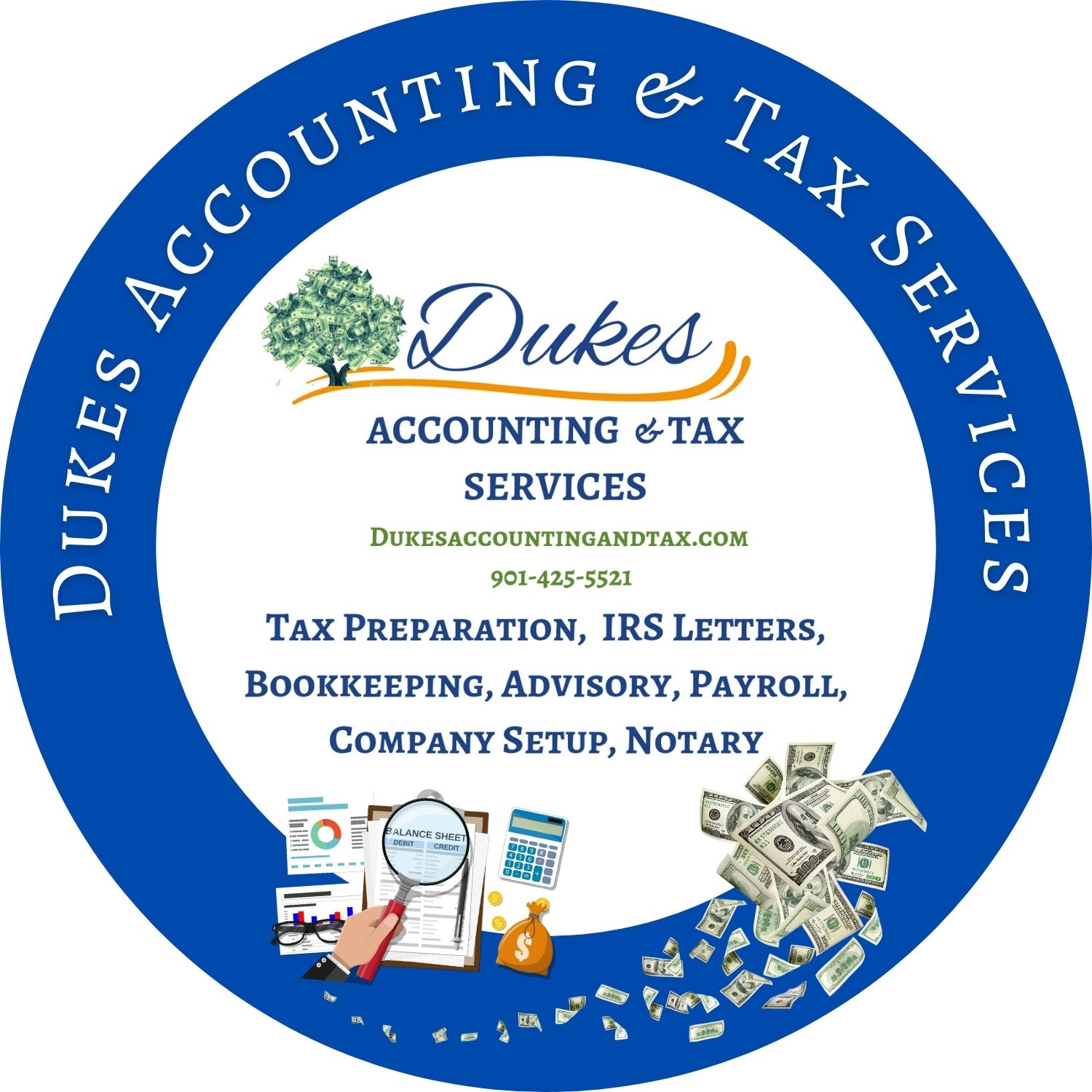Tax Season Due Dates
- Dukes Accounting & Tax Services

- Dec 30, 2024
- 2 min read
The annual tax season often brings stress for many people and businesses as they strive to submit their taxes punctually. Being aware of the crucial deadlines can reduce this stress and help you stay compliant with tax regulations. Here are some significant tax season deadlines to remember:

Important Tax Filing Dates
January 31: Employers must provide employees with their W-2 forms. Additionally, businesses must send out 1099 forms to independent contractors by this date.
April 15: This is the traditional deadline for individual tax returns (Form 1040) to be filed with the IRS. If this date falls on a weekend or holiday, the deadline is extended to the next business day.
April 15: Deadline to file for an extension. Filing Form 4868 can give you an additional six months to submit your tax return. However, any taxes owed should still be paid by April 15 to avoid interest and penalties.
June 15: For U.S. citizens and residents living abroad, this is the deadline for filing tax returns and paying any taxes due. An automatic two-month extension from the April deadline is granted, but interest may still apply.
September 15: Deadline for third-quarter estimated tax payments for the current year. This applies to those who pay taxes quarterly, such as self-employed individuals or those with significant income not subject to withholding.
October 15: Final deadline to file individual tax returns if an extension was granted. No further extensions are available beyond this date.

Business Tax Deadlines
March 15: Partnerships and S-Corporations must file their tax returns (Forms 1065 and 1120S respectively) by this date. Extensions can be filed using Form 7004.
April 15: C-Corporations file their tax returns (Form 1120) by this date. If the fiscal year is different, the return is due on the 15th day of the fourth month after the end of the corporation's fiscal year.
State Tax Deadlines
State tax deadlines may vary, so it's crucial to check with your state's tax agency for specific dates. Many states align their deadlines with the federal tax deadlines, but this is not always the case.
Tips for Managing Tax Season
Stay Organized: Keep track of all necessary documents, such as W-2s, 1099s, and receipts for deductions, throughout the year.
Seek Assistance: Consider hiring a tax professional, especially if your financial situation is complex or if you run a business.
Use Tax Software: Many find tax software helpful in simplifying the filing process and ensuring accuracy.
Plan Ahead: Avoid last-minute stress by starting your tax preparation early. This also allows time to gather any missing information.
By keeping these deadlines and tips in mind, you can navigate tax season with confidence and avoid unnecessary penalties.
_edited_edited_edited_edited.png)



Comments